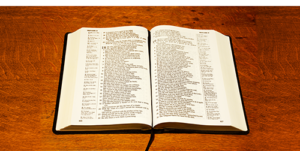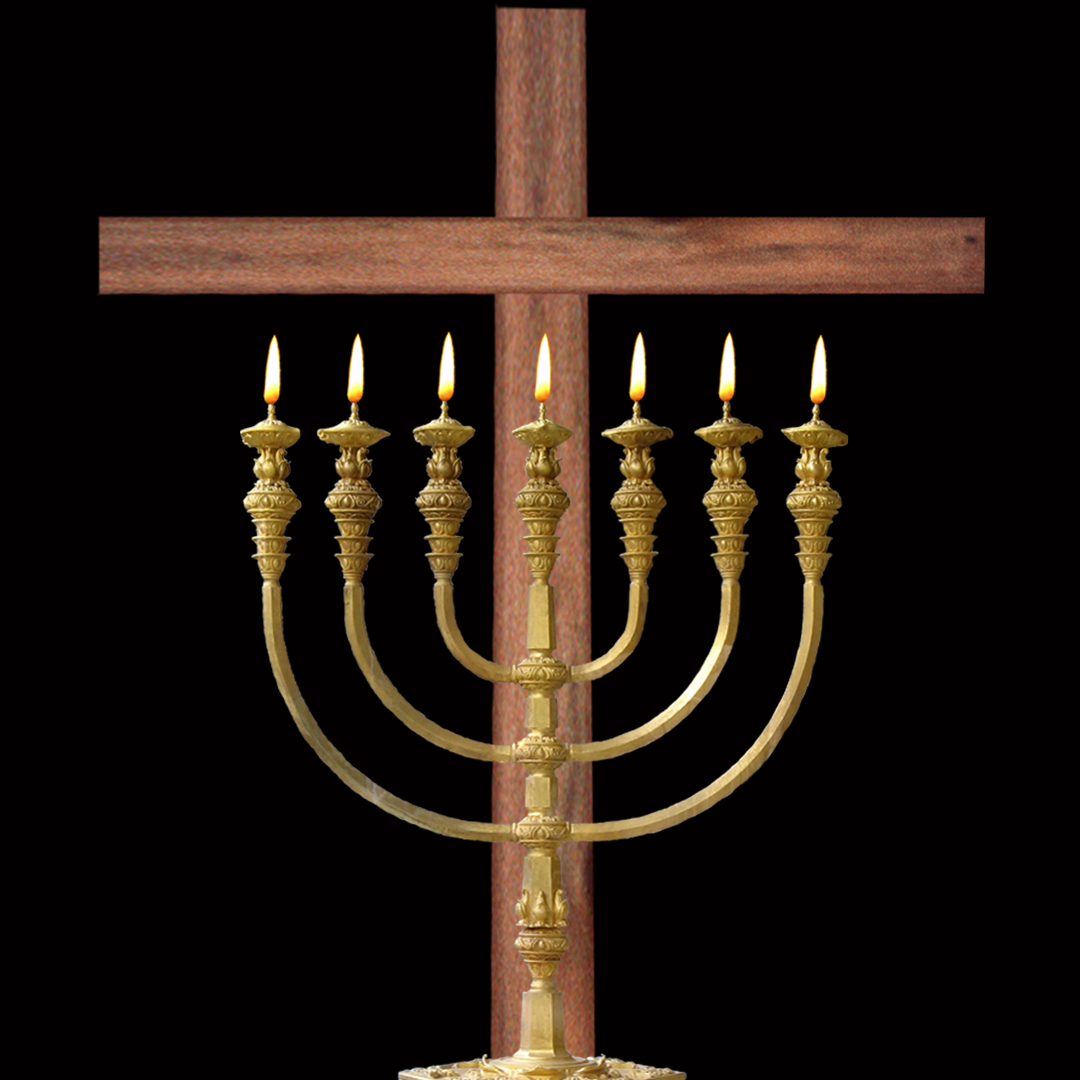Dr. McKellar’s Lesson for March 22, 2015
Guest Speaker: Dr. Jim Sibley
Jesus’ Healing of a Blind Man Points to His Identity
John 9:1-19
The Book of John can be divided into two parts:
I. Chapters 1 – 11 (A Book of Signs)
Isaiah 6:9-10 speaks of the blindness of Israel displayed in these chapters.
(This verse is quoted more often than any other in the New Testament.)
II. Chapters 12 – 21 (A Book of Passion)
Isaiah 53:1, quoted in John 12:37, speaks of Jesus’ rejection by Israel.
Dr. McKellar’s Lesson for March 15, 2015
“From Sobering Start to Spectacular Finish” Zephaniah 2:4-3:20 Bible Study 03/15/15
In the first section of Zephaniah, we find the prophet warning Judah of God’s judgment and calling the nation to repentance (1:1-2:3). In the second section the prophet announces God’s rule over the entire world and warns that all nations are accountable to Him. This includes all the nations-and Judah (2:4-3:8)! The third section of Zephaniah reflects a dramatic shift. It offers powerful hope for the future even in the midst of judgment. The prophet’s message is tailor-made for nations and people in need of reformation and revival.
I. The LORD issues a warning (2:4-15)
-surrounding nations/Judah’s enemies
-Philistines 4-7
-Moab/Ammon 8-11
-Ethiopia 12
-Assyria 13-15
-note the “remnant” reference 9
-note the assessment 10
II. The LORD indicts His own people (3:1-8)
-four-fold specification 1-2
-contrasting human corruption and divine constancy 3-5
-the LORD’S actions and the arrogance of His people 6-8
-note the command to “wait” in 8
III. The LORD announces His plan for the future (3:9-20)
-dramatic shift
-historical regathering and greater gathering
-promise of global reawakening 9-10
-promise of revival/purification 11-12
-the spectacular promise of 17
IV. Application
-Sin will not have the final word.
-God has and will have a people. (Eph. 3:4-6, Rev. 5:9)
-Because God is determined to have a people for Himself, take refuge in Him and celebrate the wonder of His love.
-“Other refuge have I none, Hangs my helpless soul on Thee; Leave, ah! Leave me not alone, Still support and comfort me. All my help from Thee I bring; Cover my defenseless head, With the shadow of Thy wing.” (Charles Wesley in “Jesus, Lover of My Soul.”
Dr. McKellar’s Lesson for March 8, 2015
“The Accountability Factor” Zephaniah 1:1-2:3 Bible Study 03/08/15
I. Introduction
-Zephaniah: Yahweh has “hidden” or “treasured”
-Date: 630 B. C. in Judah
-Setting: After Hezekiah and Manasseh and before/during Josiah
-Key Phrase: “Day of the Lord”
II. The LORD declares His intention (2-4a)
-announcement of holy anger
-immediate and ultimate judgment
-no “exemption” clause
III. The LORD details the cause of His holy anger
1. Religion: denunciation of idolatry (4b-7)
-Baal and Milcom
-Idolaters, adulterers and apostates
-“Be silent…”: no more declarations of innocence
-sacrifice imagery
2. Social Customs (8-9)
-imitation of nations by princes/officials
-vain practices
3. Commerce (10-11)
-corrupt merchants
4. The Masses (12-13)
-complacency
-defective view of God
IV. The LORD describes the coming day (14-18)
-wrath
-helplessness
-jealousy
V. The LORD discloses the possibility of escape (2:1-3)
-before the decree “gives birth…”
-seek…LORD, righteousness, humility
-“hidden”
-remnant concept
VI. So What?
-Because God alone is God, He holds all people accountable and uses extreme measures to restore them to Himself.
-Acknowledge your accountability.
-Marvel at the jealous love of God.
-Determine to banish the “Baals” from your life.
-Where there is humility and obedience, there is hope.
-“What have we to do with idols who have fellowshipped with Him?” (Rowan)
Dr. McKellar’s Lesson for March 1, 2015
“The Lord Against The City” Nahum 1:1-2:13 Bible Study 03/01/15
This morning we will focus on the prophecy of Nahum. His prophecy is directed to Nineveh, the magnificent and wicked city at the center of the Assyrian empire. The key truth we will see expounded in our text is this: Because the Lord ultimately judges evil and oppression, His people can have comfort and confidence.
I. Introduction
-Nahum: “comfort/consolation”
-date: 625 B.C.
-historical background
Nimrod (Gen. 10:11), Code of Hammurabi 2200 B.C., Ministry of Jonah 750 B.C.,
Fall of Northern Kingdom of Israel 722 B.C., Fall of Nineveh 612 B.C.
II. The Lord Avenges His Adversaries (1:1-6)
-vengeance of God
-guilt of Nineveh
-certainty of God’s judgment
III. The Lord Articulates His Goodness (1:7-15)
-jealous, avenging, good…
-“comforting” description of judgment
-a promise for the future
IV. The Lord Illustrates His Opposition (2:1-13)
-military assault
-a dreadful conclusion
V. So What?
-Let the Bible, not feeling or experience, shape your view of God.
-Remember that God will not be mocked. (Gal. 6:7)
-Consider the connection of Rom. 3:10-18.
-Flee to Christ for refuge while there is opportunity.
-“Did we in our own strength confide,
Our striving would be losing,
Were not the right man on our side,
The man of God’s own choosing.
Dost ask who that may be?
Christ Jesus, it is He,
Lord Sabaoth, His name,
From age to age the same,
And He must win the battle.” (Martin Luther)
Dr. McKellar’s Lesson for February 22, 2015
“Commit Your Way to the Lord” Nehemiah 10:28-39 Bible Study 02/22/15
As we approach Nehemiah 10, we are greeted with an extended list of returning exiles who “sealed the covenant” in light of the confession and renewal recorded in Nehemiah 9. This list, far from being an insignificant addendum to the “action” of Nehemiah, is strikingly important. The names on the list represent people from across the strata and categories of post-exilic Jewish life. The list itself indicates the solidarity of leaders in the quest to model commitment for all the inhabitants of Jerusalem. Additionally, the list conveys a timeless principle: Tangible commitment flows out of true confession. When you take the Lord’s Word seriously, you gladly commit yourself to the promotion of His purposes.
I. Grasp the context
-following assembly of confession/renewal in Neh. 9
-a signed document
-specific commitments
* cessation of intermarriage
* sensitivity to the Sabbath
* support of the Temple
II. Observe the description of the committed (10:28-29)
-…separated themselves…to the Law of God
-…knowledge and understanding
-…enter into a curse and an oath to walk…
III. Observe the specifications of the commitment (10:30-39)
-…not give our daughters: purity
-Sabbath, crops, debts: perspective
-provision for the house of God: praise
IV. Consider a NT connection (Rom. 12:1-2)
-flowing out of 11:33-36
-paradox of “living” sacrifice
-avoiding conformity
-embracing transformation
V. So what?
-Meaningful renewal flows out of submission to God’s Word
-Prize the value of community
-View yourself as steward rather than owner
-Grasp the value of biblical “separation”
-Connect your stewardship with the command to be “salt and light” (Matt. 5:13-16)
Dr. McKellar’s Lesson for February 15, 2015
“The Way Back Home” Nehemiah 9:1-38 Bible Study 02/15/15
In the book of Nehemiah, much attention is focused on the return of exiles to Jerusalem and the rebuilding of its walls. As important as this physical return and rebuilding is, Nehemiah also addresses a matter of far greater significance-the return and restoration of a chronically unfaithful people to a consistently faithful God. Nehemiah 9 contains the longest prayer recorded in Scripture. This theologically-rich chapter underscores the centrality of God’s Word, the surpassing value of His character and the solemnity of honest confession of sin to Him. When you intentionally treasure God’s Word, you gain an understanding of Him and yourself that results in ongoing renewal.
I. Review of events in Nehemiah 8
-reading of Law
-from mourning to joy
-reinstitution of Feast of Booths
II. Meeting for confession and worship (9:1-5a)
-solemn assembly
-fasting…sackcloth…dirt…
-separation from foreigners
-Word, confession and worship
III. Prayer of confession (9:5b-31)
-name of God
-God as creator
-Abraham
-captivity in Egypt to Red Sea
-desert wanderings to Promised Land
-judgment to Babylonian captivity
IV. Request and resolve (9:32-37)
-The great God…
-request: “Let not…”
-summary confession
-honest assessment
-sealed covenant
V. So what?
-Affirm God’s absolute faithfulness
-Acknowledge the devastating consequences of sin
-Agree with God’s assessment of sin
-Appreciate the power of God’s Word
-Celebrate the wonder of God’s grace and mercy!
Dr. McKellar’s Lesson for February 8, 2015
Guest Speaker: David Norman
Master of Divinity candidate at Southwestern Baptist Seminary
“The People of God and the Word of God” Nehemiah 8:1-12 Bible Study 02/08/15
Question: What Makes a Church a “Church”?
God’s People Reverence God’s Word (1-6)
God’s People Study God’s Word (7-8)
God’s People Understand God’s Word (9-12)
Main Idea: A reverence and obedience to the Word of God stands at the center of what it means to be the people of God.
Dr. McKellar’s Lesson for February 1, 2015
“Do Your Appointed Part” Nehemiah 7:1-8 Bible Study 02/01/15
After the tremendous accomplishment of rebuilding the walls of Jerusalem, Nehemiah does not suffer from a leadership let-down. Because his focus is on the God who enabled the wall to be rebuilt, he does not make an idol out of the wall itself or the sense of accomplishment connected with its completion. He clearly understands that, without effective leadership, great success may be followed by colossal failure. Therefore, as we turn to Nehemiah 7, we see a leader who is moving forward to address the long-term needs of the returning Jewish community in Jerusalem. Two key concerns are emphasized-the security of the city and the repopulation of the city. For Nehemiah, these concerns are connected closely and addressing them demands a commitment to connectivity and cooperation. Because the accomplishment of God’s purpose matters most, invest yourself in serving alongside others for His glory.
I. Understand the context of cooperation
-Eccl. 4:9-12
-Eliashib 3:1
-a notable exception: nobles from Tekoa 3:5
-Rephaiah and Shallum 3:9-12
-Malchijah 3:14
II. Observe the team-approach for security (7:1-3)
-door installation
-gatekeepers, singers and Levites…
-Hanani and Hananiah: faithful and God-fearing
-an ancient neighborhood watch
III. Observe the God-ordained strategy for repopulation (7:4-8)
-an underpopulated and vulnerable city
-census of returning exiles
-genealogical significance
-“…my God put it into my heart…”
IV. So what?
-Understand the validity of “every-member ministry”
-Set aside personal preference for the greater objective of participation in God’s purpose
-Remember that “it’s always too soon to quit”
-Celebrate the validity of glad-hearted biblical submission
-Never forget your ultimate “audience’
Dr. McKellar’s Lesson for January 25, 2015
“Be Faithful in Adversity” Nehemiah 6:1-19 Bible Study 01/25/15
This morning’s study completely explodes the popular modern myth that if one is serving God, he or she is guaranteed instant and hassle-free success. Nehemiah encounters obstacles at seemingly every turn in his quest to rebuild the walls around Jerusalem. His experience reinforces the biblical truth that captures the essence of our look at 6:1-19: Because God is able to overcome all obstacles to His work, you can complete His assignment with confidence.
I. Expect opposition when on assignment for God
-2:19-20, 4:1-5, 4:7-8
-battleship not cruiseship
-external and internal
II. Use discernment to minimize distractions (6:1-4)
-status of the walls
-a seemingly “spiritual” invitation
-Nehemiah’s awareness
-desperation of opposition
-the value of saying “no”
III. Respond to outright falsehood with open facts (6:5-9)
-open letter
-character-assassination strategy
-“Just the facts…”
-refuse to allow intimidation to immobilize
IV. Employ discretion in assessing proposals (6:10-14)
-Shemaiah’s recommendation
-ancient asylum-seeking
-Nehemiah’s key question
-Nehemiah’s perception
V. Anticipate opposition even after completing the assignment (6:15-19)
-the impact and testimony of a completed wall
-continuation of harassment
-the best answer to opposition
Dr. McKellar’s Lesson for January 18, 2015
“A Womb with a View” Psalm 139:13-18 Bible Study 01/18/15
What is a human life worth? Not much, apparently, if we consider the manner in which American culture treats its unborn and aged. Sadly, a mother’s womb has become a hazardous site in our country and the plight of the aged is riddled with accounts of neglect and abuse. More than twenty-five years ago, former Surgeon General, C. Everett Koop, lamented this devaluation of human life when he said, “When I graduated from medical school the idea was, ‘How can I save this life?’, but for a great number of the medical students now it is, ‘Should I save this life?’”
The best resource to consult if we want to gain a true measure of the value of human life is its Author. The God of creation, who created us in His image, gives us several insights into His perspective in the pages of Scripture. One specific instance of this perspective is found in Psalm 139. Addressed to the Choirmaster, this psalm of David celebrates God’s intimate knowledge of us and His intricate fashioning of us as His unique handiwork. As the Author and Sustainer of human life, God values our existence. Because He values life, so should we.
I. With intimate intricacy He defines our individuality (13-14)
-inward parts, “kidneys”, depths of being
-a “from the womb” perspective
-the “Knitter” who weaves together
-He is awesomely wonderful! He made us!
II. With infinite insight He orchestrates our existence (15-16)
-hidden from humans but not from God
-embroidered with skill
-“…Your eyes saw my ‘embryo’”
-“…Your scroll recorded my days before days”
III. With absolute amazement ponder His providence (17-18)
-the value of His thoughts
-the vastness of His thoughts
-waking or sleeping…
IV. So what?
-Mourn the 50 million+ victims of abortion and pray for God’s mercy
-Relate to others, especially the pre-born and aged, as “precious in His sight”
-Live with a profound sensitivity to God’s presence and power
-“Great God! from Thee there’s nought concealed, Thou seest my inward frame; To Thee I always stand revealed Exactly as I am!
Since I can hardly, therefore, bear What in myself I see; How vile and black must I appear, Most holy God to Thee!
But since my Saviour stands between, In garments dyed in blood, ‘Tis He, instead of me, is seen, When I approach to God.
Thus, though a sinner, I am safe; He pleads, before the throne, His life and death on my behalf, And calls my sin His own.
What wondrous love, what mysteries, In this appointment shine! My breaches of the law are His, And His obedience mine.” (John Newton)


